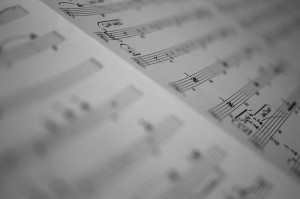Music as Medicine
05-Nov-2013
“Silence is full of music” • Marcel Marceau

Gabrielle Giffords, former member of the US House of Representatives, lost the ability to talk when she was shot in January 2011. The head wound she sustained during the attempt on her life caused severe damage to the speech centre in her left brain. Her progress has been extraordinary in light of the extent of her injuries, and she has now regained some speech.
Music played a significant role in Giffords’ recovery. Melodic intonation therapy (MIT) helps to create new speech pathways to circumvent damaged areas of the brain. One theory is that music, processed through the right side of the brain, can retrain the left side, which controls language and speech.
Connie Tomaino, Executive Director of the Institute for Music and Neurologic Function in New York, has seen people with aphasia achieve remarkable results through music therapy. So much so that the Institute opened an outpatient facility for music therapy last spring. Improvement has been reported after about 12 sessions. “What science is showing us is that there are preserved networks that inform language through singing,” says Tomaino.
Connie Tomaino has worked closely with neurologist Oliver Sacks, author of Musicophilia: Tales of Music and the Brain (Knopf Canada, 2007). In this short video, Sacks tells a story about how one of her patients experienced the benefits of music therapy:
Music is a language shared across generations, cultures, beliefs, and abilities. The fact that its capacity to transform the human brain is increasingly being recognized adds an intriguing dimension to what turns out to be one of life’s not-so-simple pleasures.
What else is going on around the world related to this topic? Please let us know by writing to blog(at)isaac-online.org.